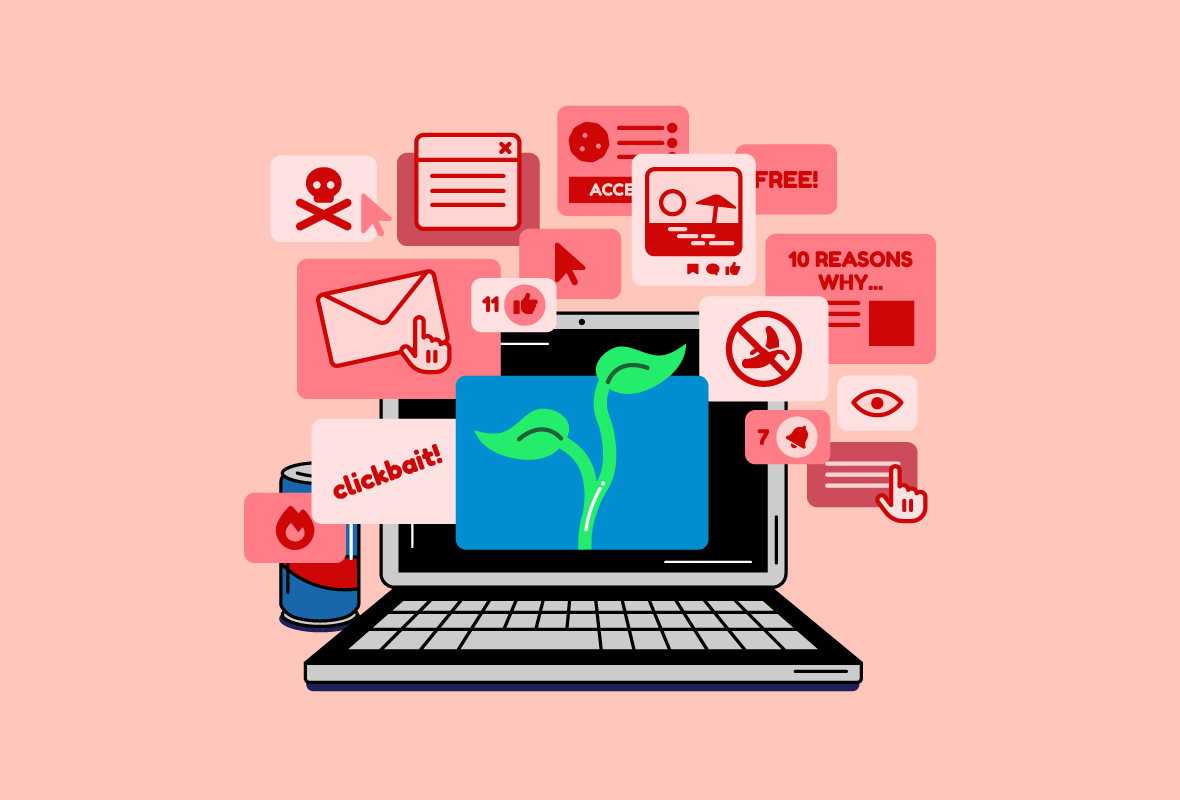I asked myself the question if I didn’t work in web design and development, how and why would I use the Internet? Would my behaviour be any different? What do I actually use the Internet for now anyway and how can I help to foster a Sustainable Internet?

The question arose from a general feeling of malcontent and malaise towards web content, specifically the driving force behind the existence of the majority of mainstream content: the need to be sticky, to be heard, to rank and to generate clicks at all costs.
When talking to clients, I used to say the phrase “content is king”, and whilst I think I still believe that, more often than not, it has to boil down to utilitarian quality, both for the website and the application, as well as the content that populates it.
Maybe it is because I am getting older, becoming the ‘elder millenial‘ I purport to be, but I can’t help but apply the same reasoning to why I buy furniture to why I use a website. It can’t just look pretty and serve needless reams of ‘news’ or the like (or in the case of furniture, be purely ornamental without storage space, hidden or otherwise), it simply has to be useful in order to claim its place in the ever-expanding volume of noise we call the Internet.
What I choose to read has to have an impact or inform me, and it’s housing, be it an app or a website, has to be beautifully accessible, clearly sustainable and serve an absolute purpose. My colleagues and I well understand why something may be peppered with advertising, most of which has tracked us from some app or another, or written to rank in search as highly as possible, but perhaps the more encouraging thing is that the sites and apps that facilitate the serving the content are learning to become more and more selective. Google will encourage us to build sites and content in a specific way, but clearly, it will also know if we try to trick it to generate visibility.
So in an effort to keep this article within the recommended length of the search engines, here we go. I use the Internet to:
1. Connect my devices to one another, to message and communicate with the people that I care about, and the people I do business with.
2. Manage my money, bills, travel, accomodation and food.
3. Stream audio visual content, specifically television, film, music and podcasts.
4. Manage my health requirements.
5. Research specific information and provide inspiration for creative ideas.
6. Watch cat videos.
Clearly there are probably more, but I would like to think that my job has made me more discerning, although more cynical is probably more accurate. Social media is clearly a case in point and whilst I will use it for work and creative pursuits, I simply don’t want to engage in commentary or conversation, or be addled by the endless stream of contrived dancing imbeciles. Sounds harsh I realise but the fact remains.
Perhaps more disturbingly, I simply won’t read the news any longer and I am really not alone. Not only is it disturbing the majority of the time, but I can’t help but question it’s integrity and authenticity, let alone its purpose. Fake news is everywhere and we have been consuming it for far longer than we think, or far longer than the term ‘fake news’ has been popularized. With an unmeasurable amount of ‘channels’ online and consumable through connectivity, we must take responsibility for what we are publishing.
We must build and foster a conceptually sustainable Internet. Content must be of value to another human being, must not be hateful in any way, and ideally, needs to serve a wider purpose. Websites and apps must be utilitarian, built with accessibility and sustainability in mind, and be responsible for the content they serve.
Nuff said.